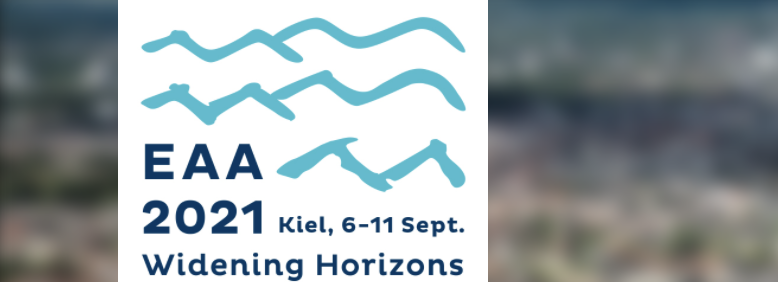ARIADNEplus and SEADDA have had a paper accepted for a joint session at this year’s virtual annual meeting of the European Association of Archaeologists (EAA 2021). Session #476 comes under theme 3, The new normality of heritage management and museums in post-Covid times, and is entitled Understanding and Expanding Capacity in Archaeological Data Management beyond Western Europe. This will take place on the 8th September 11:00 ‐ 16:30 CEST.
Abstract
The COVID-19 pandemic has exacerbated or made more visible many known inequalities across borders and societies. This includes access to archaeological resources, both physical and digital. As both the creators and users of archaeological data adapted to working from their homes, cut off from artefact collections and research data siloed within organisations and institutions, the importance of making data freely and openly available internationally became even more pronounced. The ARIADNE infrastructure (ariadne-infrastructure.eu) for archaeological data, and the SEADDA COST Action (seadda.eu) are working to secure the sustainable future of archaeological data across Europe and beyond, in ways that are Findable, Accessible, Interoperable and Re-usable (FAIR). Experience within the ARIADNE partnership during the pandemic was largely positive, with many partners able to carry on as usual with accessing their digital resources, emphasising what is possible, while also emphasising what is not achievable across archaeology, due to lack of capacity. ARIADNE and SEADDA invite papers discussing the challenges, opportunities and lessons learned across all aspects of archaeological data management during the pandemic, and how it may change and inform our best practice going forward. We particularly invite papers from outside of Western Europe on how the COVID-19 pandemic created barriers or opportunities for accessing archaeological resources, so that we may better understand capacity building during a post-COVID era.
The COVID-19 pandemic has exacerbated or made more visible many known inequalities across borders and societies. This includes access to archaeological resources, both physical and digital. As both the creators and users of archaeological data adapted to working from their homes, cut off from artefact collections and research data siloed within organisations and institutions, the importance of making data freely and openly available internationally became even more pronounced. The ARIADNE infrastructure (ariadne-infrastructure.eu) for archaeological data, and the SEADDA COST Action (seadda.eu) are working to secure the sustainable future of archaeological data across Europe and beyond, in ways that are Findable, Accessible, Interoperable and Re-usable (FAIR). Experience within the ARIADNE partnership during the pandemic was largely positive, with many partners able to carry on as usual with accessing their digital resources, emphasising what is possible, while also emphasising what is not achievable across archaeology, due to lack of capacity. ARIADNE and SEADDA invite papers discussing the challenges, opportunities and lessons learned across all aspects of archaeological data management during the pandemic, and how it may change and inform our best practice going forward. We particularly invite papers from outside of Western Europe on how the COVID-19 pandemic created barriers or opportunities for accessing archaeological resources, so that we may better understand capacity building during a post-COVID era.

